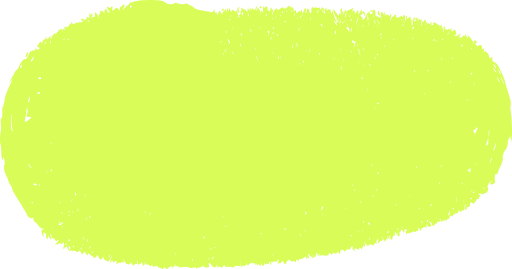🌍 All
About us
Digitalization
News
Startups
Development
Design
Product Owner vs Project Manager - Understanding Key Roles in Your Organization
Product Owner vs Project Manager - Understanding Key Roles in Your Organization
Damian Czerw
Feb 07, 2023・5 min read
Table of Content
Product Owner: The Visionary and Value Optimizer
Project Manager: The Orchestrator of Project Success
Responsibilities that Overlap: Product Owner vs Project Manager
Key Differences: Product Owner vs Project Manager
Shared Characteristics and Skills for the Product Owner and the Project Manager
Which Role is Better for Me?
In Conclusion: Product Owner vs Project Manager
In the dynamic world of project management and product development, roles such as the product owner and project manager are often discussed. Understanding the 'product owner vs project manager' conundrum is not just about comparing job titles, but more about understanding their unique roles, responsibilities, and their critical contribution to the success of a project or product. Let's delve deeper into their roles, their overlapping responsibilities, and the key differences between them.
Product Owner: The Visionary and Value Optimizer
Traditionally, in Scrum or Agile environments, the product owner role is critical. The product owner owns the product vision and is responsible for maximizing the value of the product by prioritizing the product backlog.
The product owner is often a liaison between the business stakeholders, the development team, and the customers. They focus on understanding customer needs and translating those into actionable user stories for the development team. In this way, the product owner manages the balance between customer satisfaction and the practicalities of product development.
The product owner is also responsible for product backlog management. They need to be technically savvy enough to understand the complexities of the product and business acumen to make informed decisions. Constant communication with all stakeholders and agile team members is vital, keeping everyone aligned with the product vision and customer feedback for continuous product value enhancement.
Project Manager: The Orchestrator of Project Success
In contrast to the product owner, the project manager manages the logistics of getting a project from inception to completion. This role is typically seen in more organized systems where there is a clear project scope and defined project objectives.
The project manager creates the project plans, schedules, and work breakdown structures. They are also responsible for the team's efforts, making sure they are coordinated and focused on the specific project tasks. The project manager oversees the project's progress, ensures timely delivery, and manages risks.
A project manager thrives in a structured environment but also needs to adapt to constantly changing environments. They use project management tools to ensure all project tasks are on track. Stakeholder management, communication skills, and the ability to handle project's success under the constraints of the iron triangle's elements (scope, time, and cost) are some critical skills a project manager must possess.
Responsibilities that Overlap: Product Owner vs Project Manager
While there are distinct roles, both the product owner and the project manager share some responsibilities. Both roles require excellent communication skills, the ability to manage a team, and an understanding of the broader business and customer perspectives. They are both accountable for the success of their respective domains, and both must constantly interact with all the stakeholders to ensure alignment towards the common goal.
Both roles also share a commitment to customer satisfaction, product or project success, and a very probable scenario in today's dynamic environments is for them to work together with cross-functional teams to ensure product value and project success.
Key Differences: Product Owner vs Project Manager
The fundamental difference between a product owner and a project manager lies in their focus areas. While the product owner focuses on maximizing product value, the project manager focuses on executing the project plans and meeting project objectives. The product owner is deeply involved with the product and its potential users, while the project manager oversees the project execution with an emphasis on timelines, resource allocation, and project scope.
Moreover, the product owner role is commonly associated with Agile or Scrum teams, while the project manager's role is more traditional, although an Agile project manager is also a very prevalent role in the current business scenario.
Shared Characteristics and Skills for the Product Owner and the Project Manager
While there are distinct differences, both a product owner and a project manager share certain characteristics and skills. Both roles require strong leadership, decision-making capabilities, excellent communication skills, and the ability to work well with diverse teams and stakeholders.
Project managers build the structure and monitor the project, while product owners focus on delivering the product that the market needs. Both roles require a deep understanding of their respective domains, a high level of organization, and the ability to navigate complex and often uncertain environments.
Which Role is Better for Me?
Choosing between the product owner vs project manager roles depends largely on your interest and career aspirations. If you enjoy shaping a product's direction based on market needs, the product owner role might be a fit. If you are more inclined towards planning, controlling, and executing projects within the defined scope, time, and cost, the project manager role might be more suitable.
Remember, both roles are critical in their respective domains and can offer rewarding careers. They provide a perfect blend of technical expertise, business understanding, and people management.
In Conclusion: Product Owner vs Project Manager
To conclude, both the product owner and the project manager are integral to the success of a project and product. Understanding their roles, responsibilities, and the context in which they operate can lead to better project and product outcomes.
While the comparison of product owner vs project manager might seem complicated, knowing the differences and similarities will enable organizations to leverage these roles effectively and drive project success and product value. And for individuals, it might be a deciding factor in shaping a rewarding career path.
Want to learn more? Stay tuned for more insights into the world of product and project management!

 Don't miss a beat - subscribe to our newsletter
Don't miss a beat - subscribe to our newsletterYou may also  like...
like...

The Innovation Product Life Cycle: Phases and Strategic Insights
Mastering the innovation product life cycle—from ideation to renewal—gives businesses a competitive edge in a fast-evolving market. This guide unpacks each phase and offers strategic insights to help you plan, adapt, and thrive.
Alexander Stasiak
Jun 24, 2025・10 min read

A Practical Guide to Choosing the Right BDD Framework for Your Needs
Choosing the right Behaviour-Driven Development (BDD) framework is key to enhancing collaboration and software quality. This guide explores popular frameworks, selection criteria, and tips for smooth adoption.
Alexander Stasiak
Mar 21, 2024・9 min read

Understanding the Distinct Roles: Scrum Master vs Product Owner
Scrum Master and Product Owner roles are integral to Agile projects but serve different purposes. This guide explains their distinct responsibilities, skills, and collaborative dynamics.
Marek Pałys
Dec 09, 2024・8 min read




